Elderflowers are some of the first flowers you can harvest in the spring in Norway. The season is quite short, but typically you will find them in late May through June. They grow on trees and produce beautiful white flowers with a gorgeous floral scent.
There are so many delicious ways to prepare and cook with elderflowers, which is why they are so popular in this part of the world. They have a soft and fresh taste, reminiscent of pear, lychee, and some tropical fruits.
Elderflowers are thought to have arrived in the Nordic countries already during the Viking Age. Findings of the flowers have been traced to Stone Age residences in southern Scandinavia. They were described in the Edda poems as Freya’s tree. It is assumed that the monks brought elderflowers to Norway in the Middle Ages.
Today they’re found everywhere in western Norway, often near old gardens and fields. The most common way to use or cook with elderflowers in Norway is to make ‘saft’, or a cordial that is a concentrated juice sweetened with sugar and added citrus.
Both red and black elderflowers exist. The black has the most aromatic flowers, edible berries, and flowers later in the spring. Red elderflowers, however, do not have edible berries, are less aromatic but grow wild, and flower early.
Both types can be used to make juice or cordials, but black elderflowers produce a superior taste.
Just don’t plant the red kind in your garden because it spreads like wildfire!
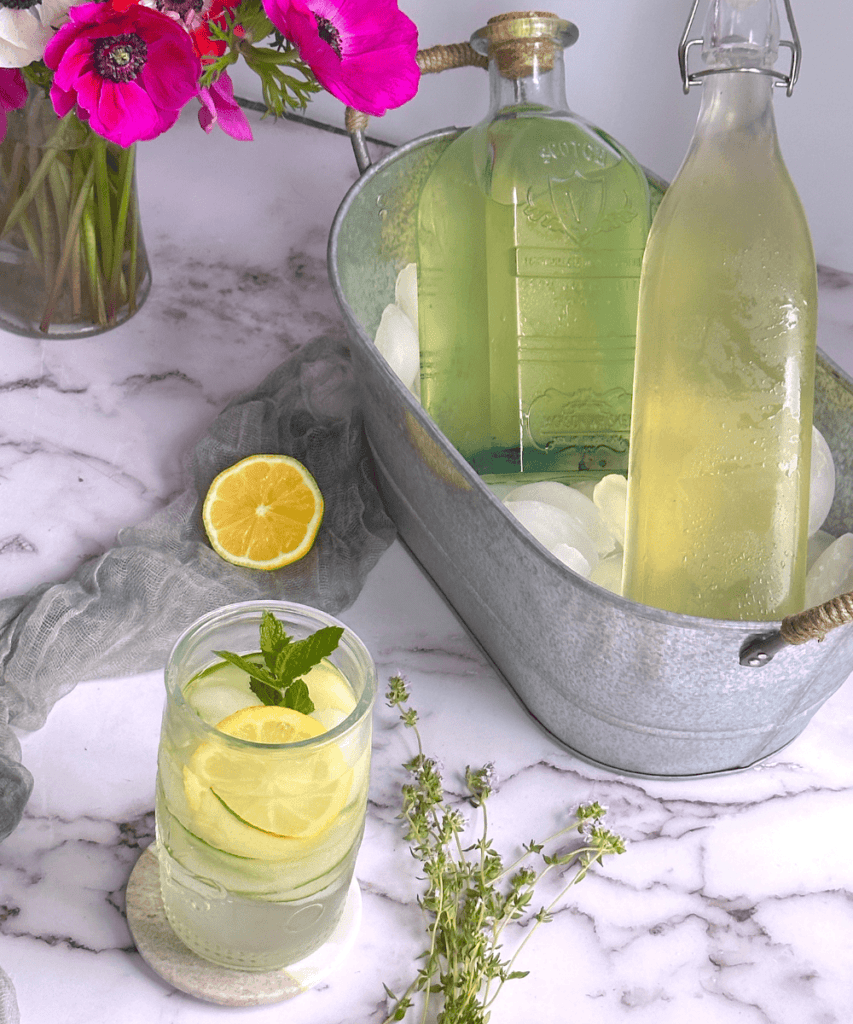
Elderflowers aren’t the most common item to come by at farmer’s markets in the U.S., but my friend, Jennifer (a lovely flower farmer who runs Six Dutchess Farms with her equally lovely husband Hans) has a gorgeous estate with loads of them.
Since Jennifer’s mother is Danish, what she grows on the farm is very much influenced by her Scandinavian heritage—apples, pears, redcurrants, blackcurrants, strawberries, blueberries, mushrooms, and rhubarb, and lucky for me she also has tons of elderflower trees!
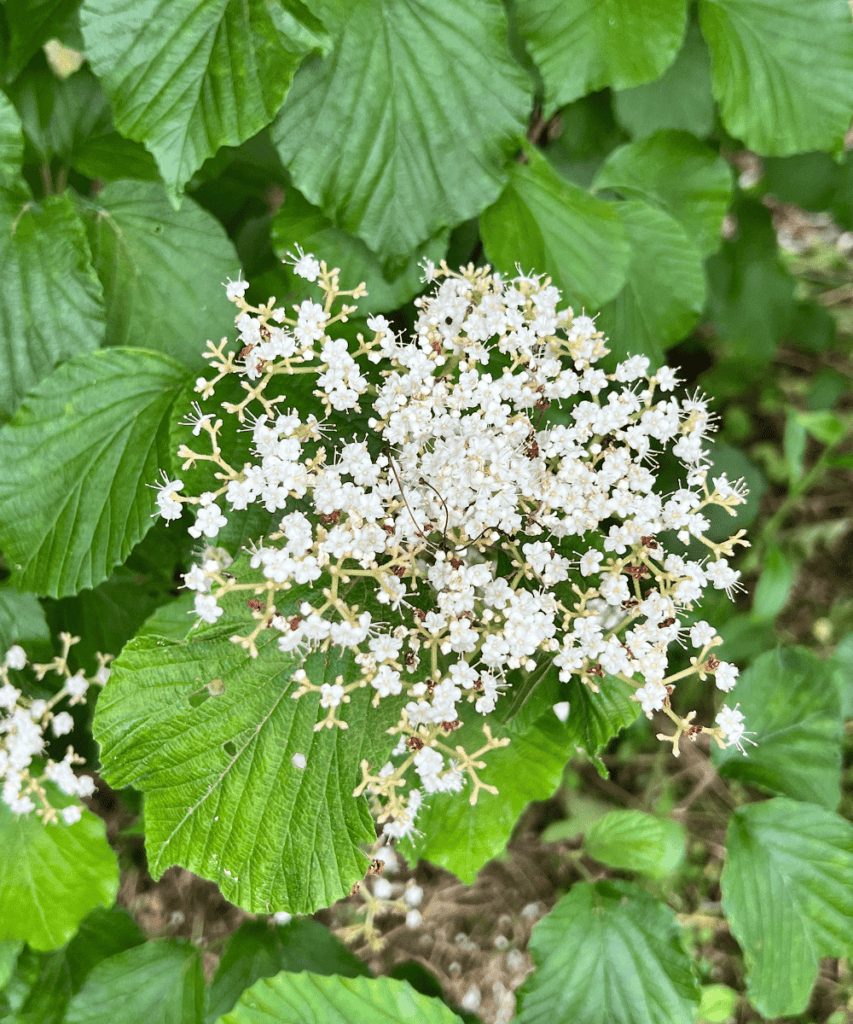
When I visited earlier this week, just one tree had flowered, and Jennifer graciously snipped off all the flowers for me to take home. (I also went home with gorgeous flowers, lots of herbs from her herb garden, snap peas, snow peas, and some beautiful rhubarb.)
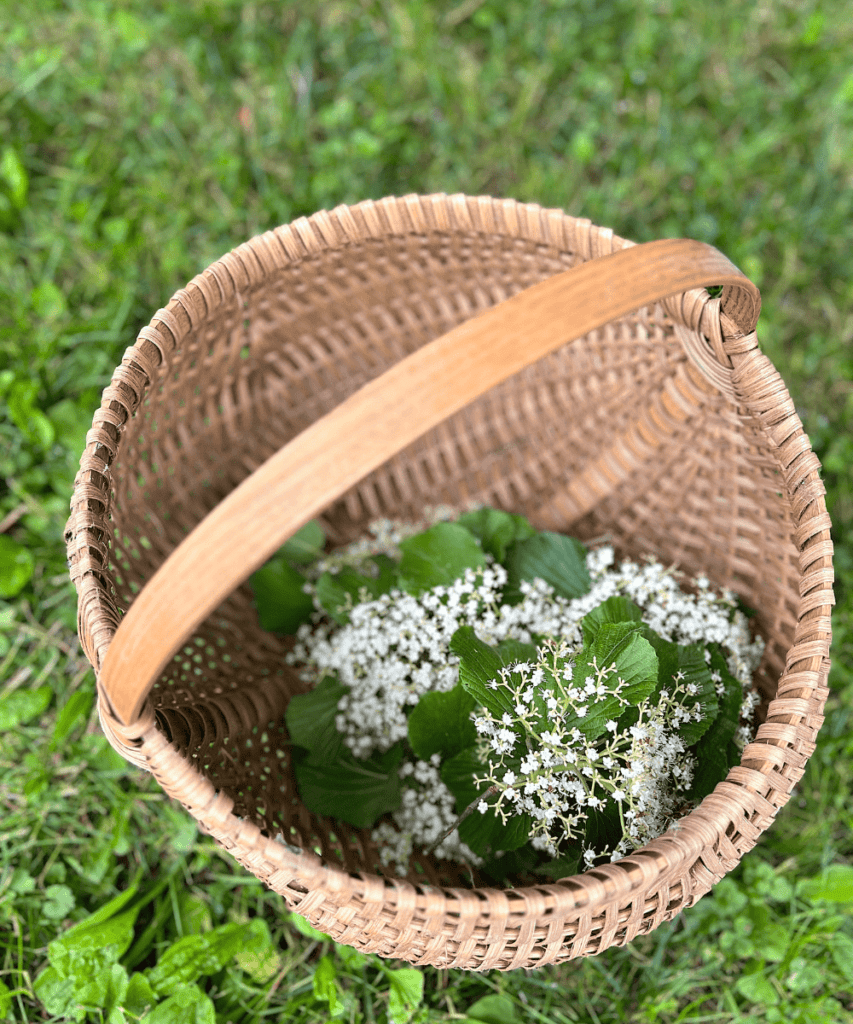
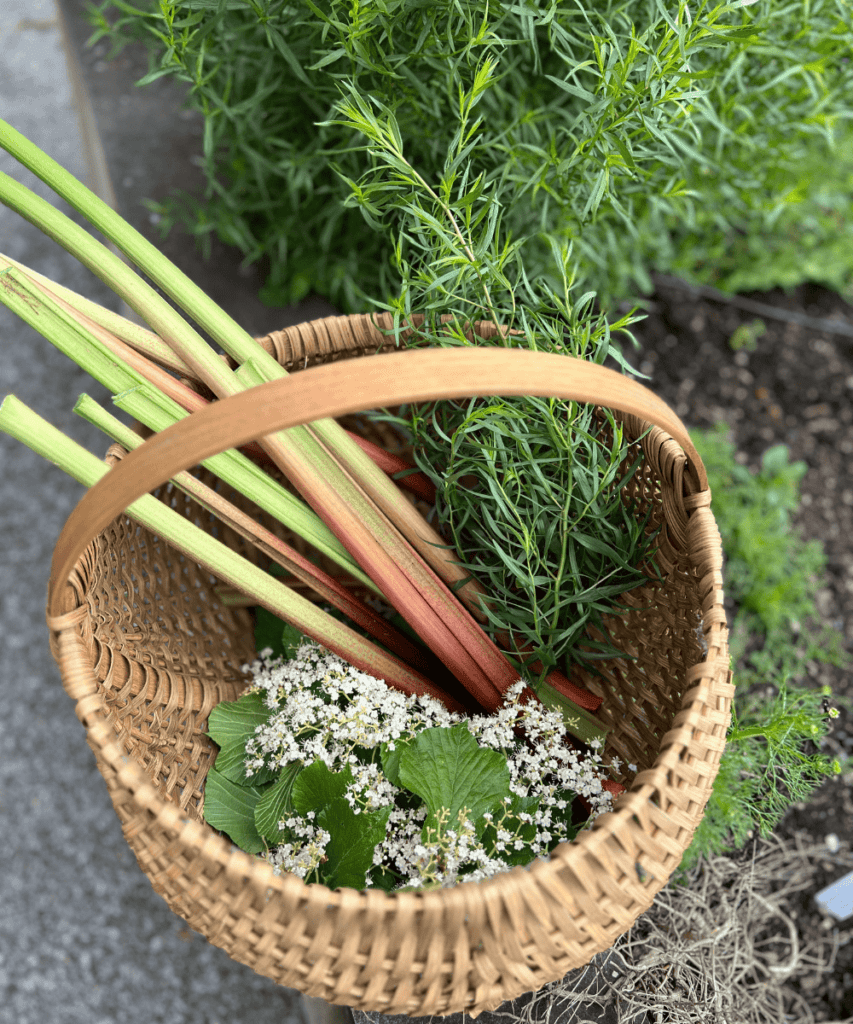
Of course, when back home, I had to cook up a sugar solution with citrus to soak the elderflowers for a cordial.
What’s important when using elderflowers is making sure they’re ripe as the green parts of the plant and the core of the berries contain poisonous alkaloids. When mature they contain much less of these substances, the rest are destroyed when boiled or dried.
Elderflowers are harvested when the weather is dry and right after they’ve bloomed.
Once harvested they should be airdried in a shaded place. Then when dry, remove the stalks and keep the flowers in an airtight, dark container.
The elderflower cordial can be used for both mocktails and cocktails with the spirit of your choice.
In the mocktail, add some club soda or sparkling water for a refreshing spritz you can enjoy all summer long. The distinct flavor is mouthwateringly delicious!
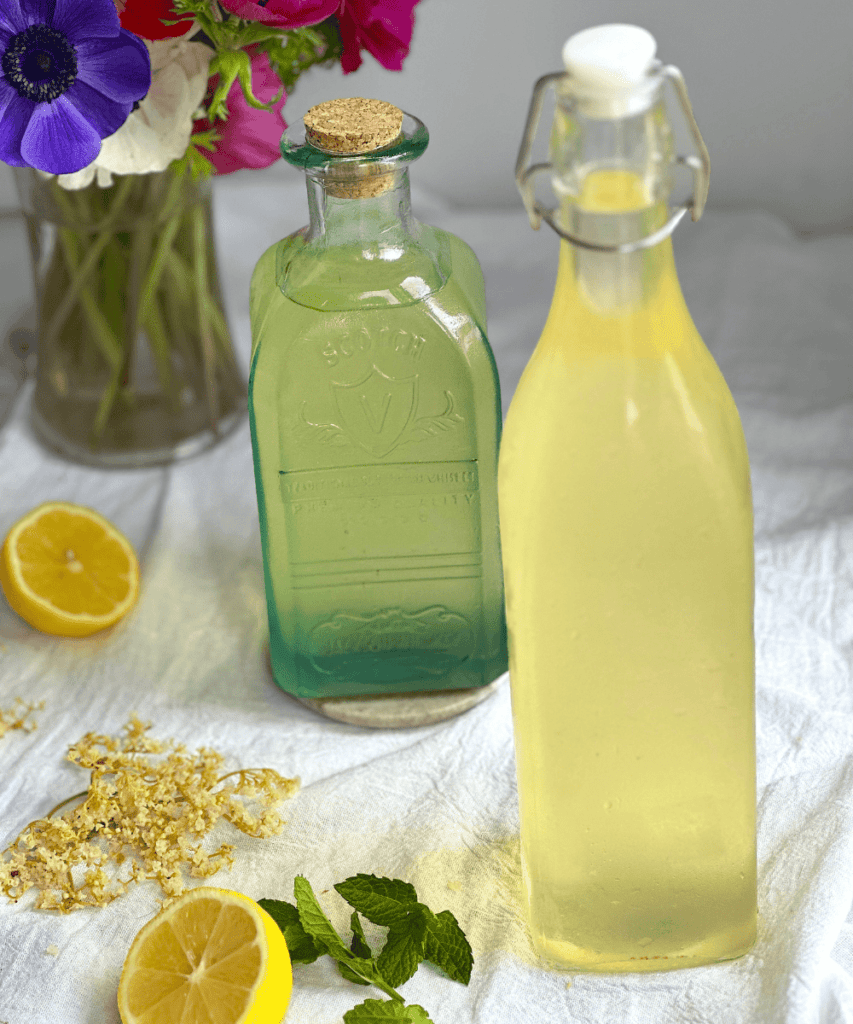
For the gin cocktail, I like to add a touch of sparkling wine or Prosecco, or a splash of club soda.
You can also play around with adding a touch of the elderflower cordial to your gin and tonic, for a different (and elevated) experience of this classic.
I recently started working with an artisan gin producer from my hometown of Sykkylven in Norway, Brennevinsgrova, and naturally, I wanted to experiment with their products.
Brennevinsgrova produces beautiful gins and aquavits with the purest water from the nearby glaciers and rivers in the coastal region of northwestern Norway. They harvest wild blueberries from the mountains and use local strawberries, with which they infuse their spirits, among other exciting herbs and fruits.
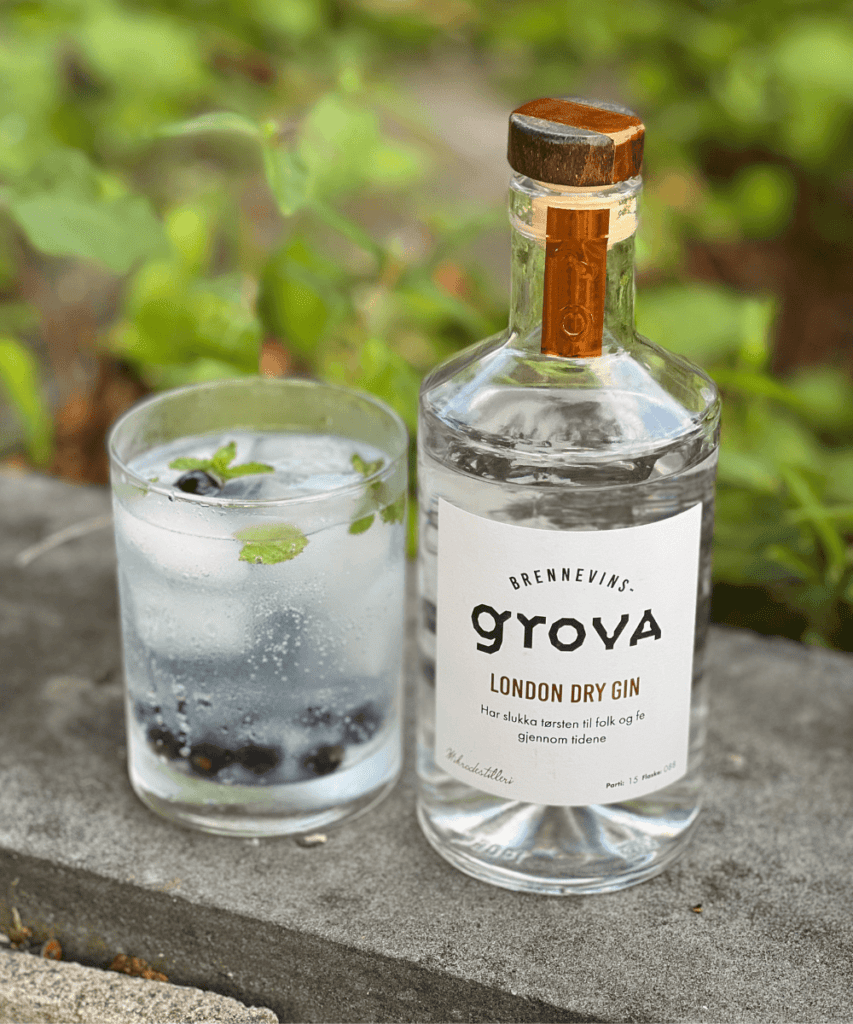
If you can find elderflowers near you, I hope you try my recipe for this cordial. It’s a great alternative to traditional lemonade, easy to make, and tastes so much better than anything you can buy!
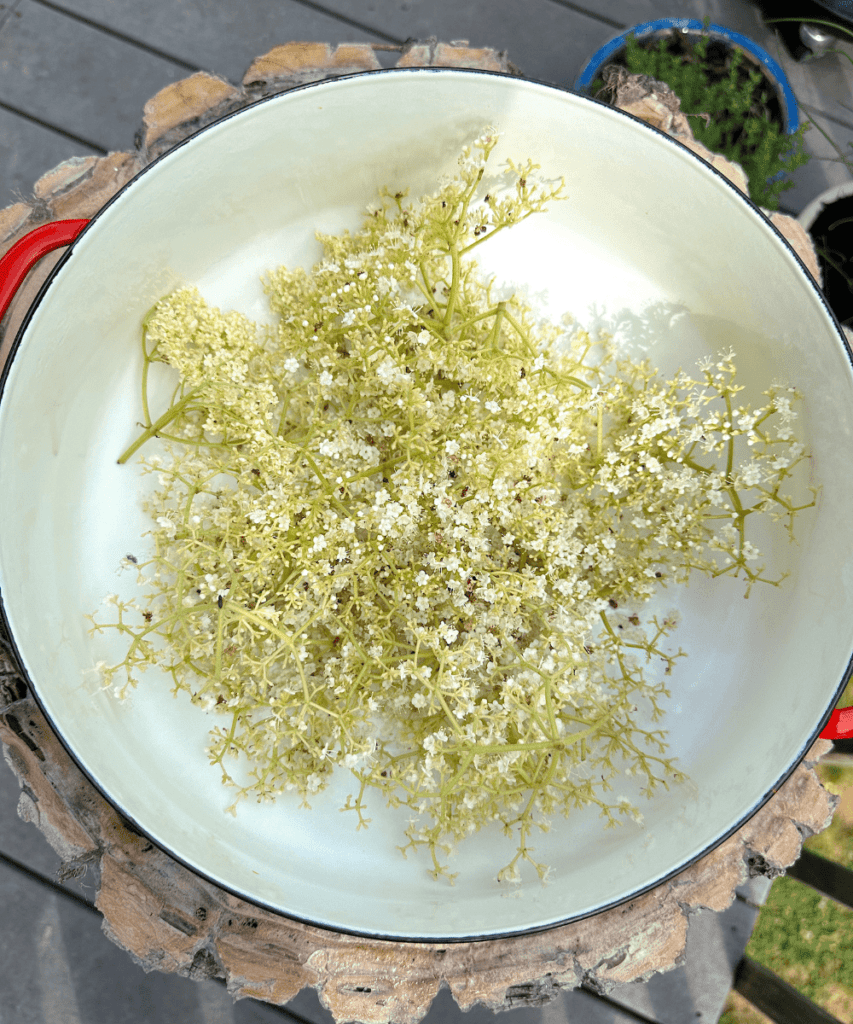
Hylleblomstsaft (Elderflower Cordial)
About 20 elderflowers, leaves removed
2 quarts (2 liters) water
2.2 lbs (1 kilo or 5 cups) sugar
1 lemon, sliced thinly
1 lime, sliced thinly
60 grams (2 oz) citric acid*
Directions:
Bring water and sugar to a boil in a large pot, and stir to dissolve sugar. Add the sliced lemon, lime, and citric acid, then finally the elderflowers.
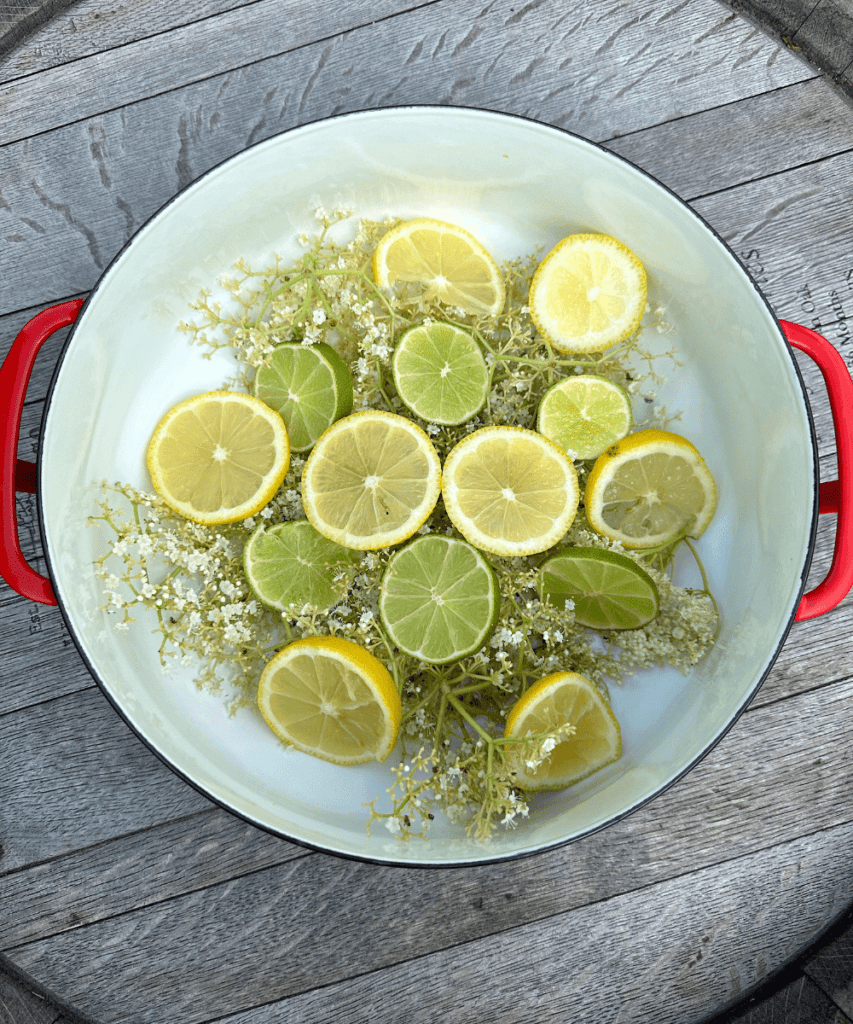
Stir to combine and leave to cool in the refrigerator for about 24 hours.
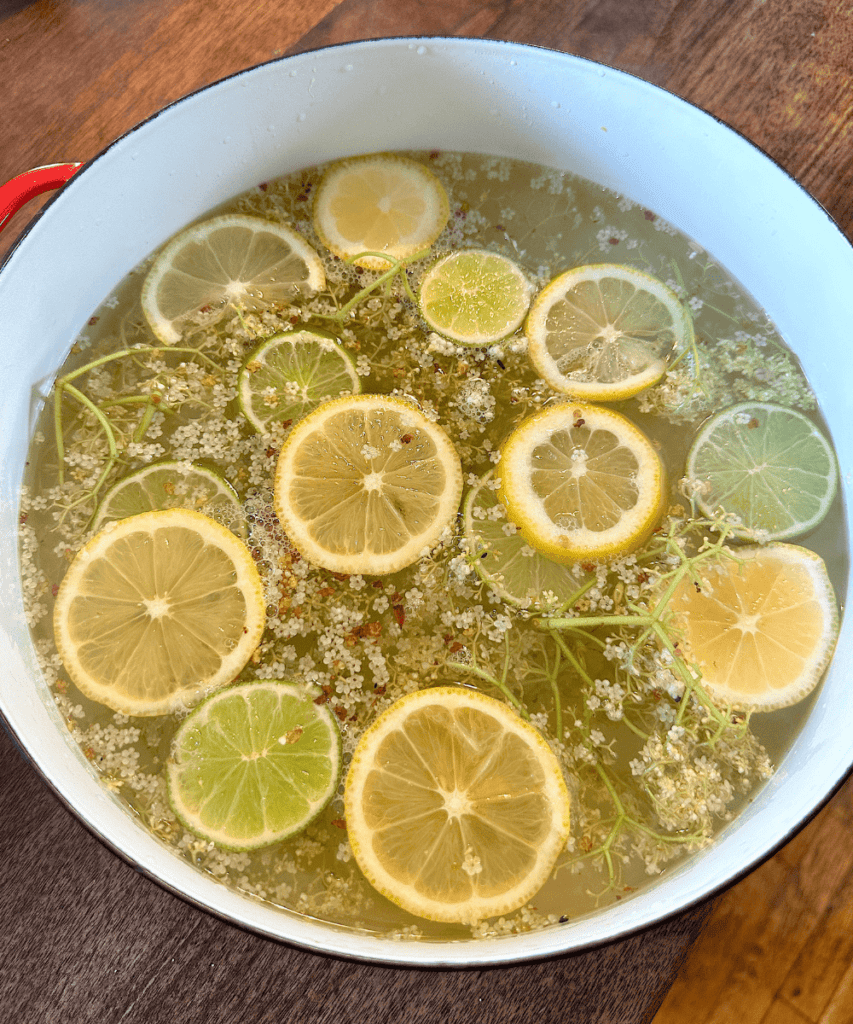
Strain the liquid into a sterilized jar or glass bottle and store it in the refrigerator. Keeps for several months if you include citric acid, without about 6 weeks.
Notes:
*Citric acid is a natural preserve found in citrus fruit. It is added to preserve the cordial and lifts up the flavor because of its bright citrus flavor. It’s not necessary to add it but it keeps the cordial for much longer. Make sure to buy food-grade citric acid—it can be found in most grocery stores.
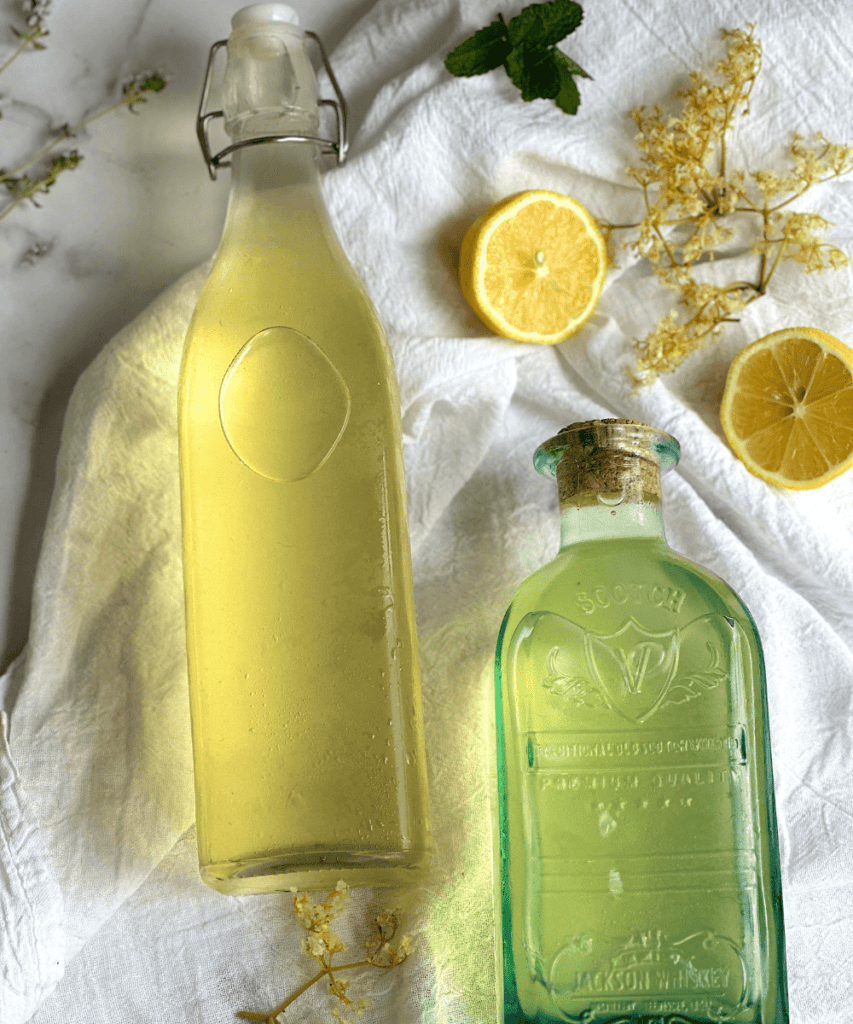
Elderflower Gin Mocktail
2 oz (6 cl) Elderflower cordial
1 oz (2 cl) fresh lemon or lime juice
club soda
Mint sprig, garnish
Cucumber ribbons, garnish
Lime or lemon wheel, garnish
Combine elderflower cordial and citrus juice of choice in a glass, fill with ice, and stir with a bar spoon.
Top off with club soda and garnish with cucumber ribbons, a lime or lemon wheel, and a mint sprig.
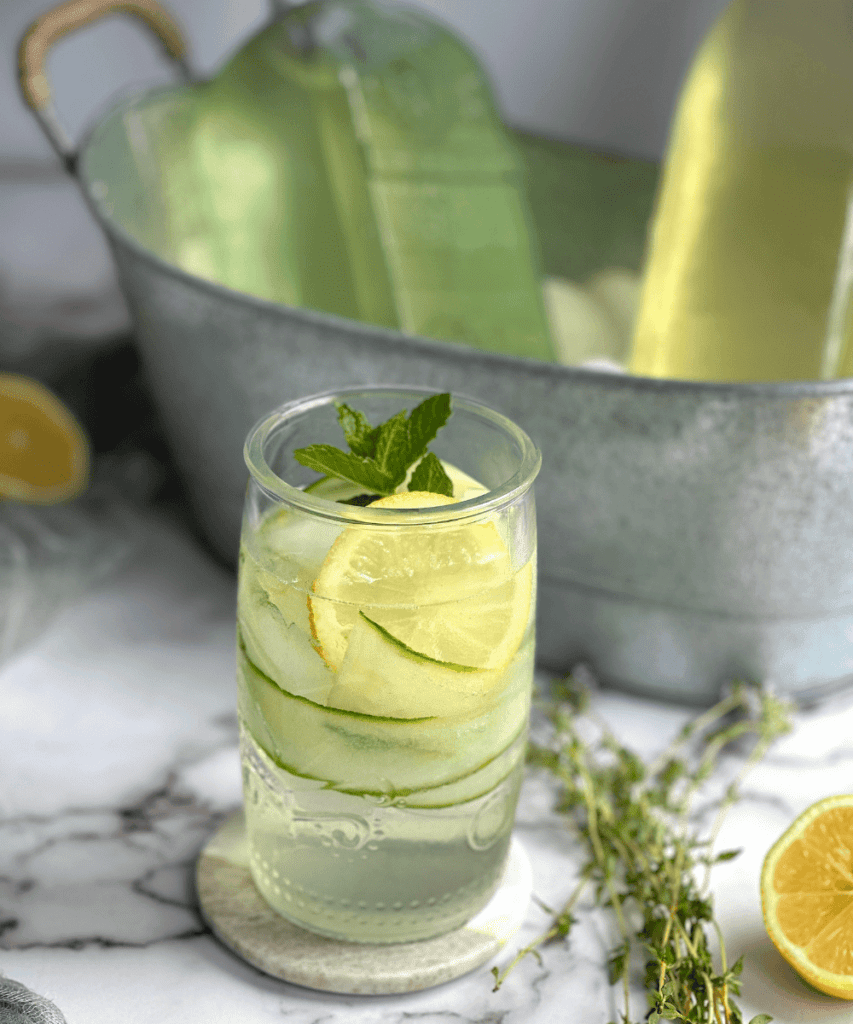
Elderflower Gin Cocktail
2 oz (6 cl) gin (London Dry or botanical)
1 oz (2 cl) Elderflower cordial
1 oz (2 cl) fresh lemon juice
1 oz (2 cl) or a splash of club soda (or sparkling wine such as Prosecco)
Lemon wheel, garnish
Fresh mint sprig, garnish
Combine gin, elderflower cordial, and lemon juice in the base of a shaker, fill with ice, and shake for about 15 seconds.
Strain into a highball glass filled with fresh ice, and top with club soda or sparkling wine. Garnish with a slice of lemon and a mint sprig.
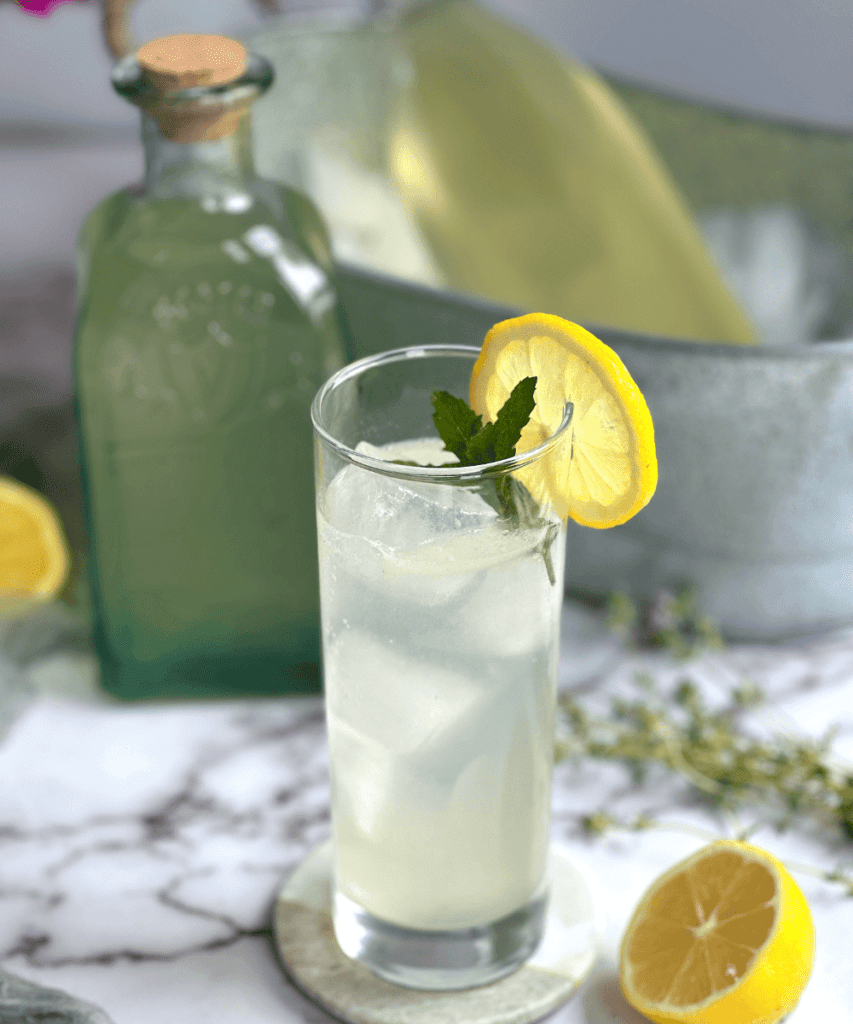



0 Comments